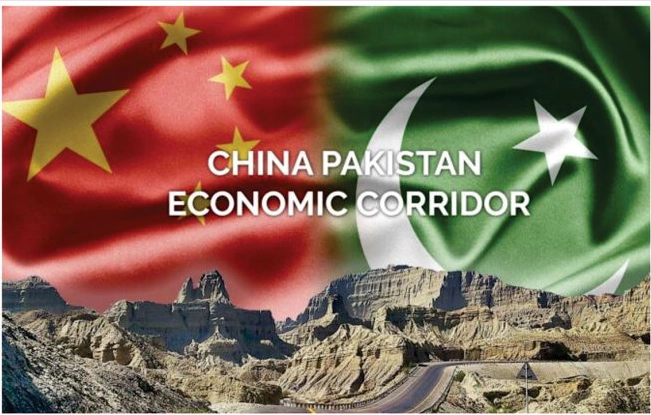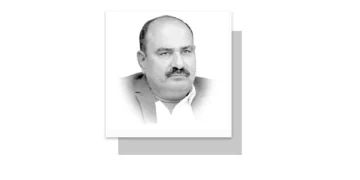KNOWING the deep-rooted friendship of China and Pakistan, the western powers including the USA had launched extensive publicity and propaganda against China on religious basis in the fifties. Their purpose was to create distance between Pakistan and China, two neighbouring countries, whose friendship had the potential to change their fate and future.
Pakistan recognized China on 4 January 1950 and established diplomatic relations with her in 1951. In his tenure as Foreign Minister of the Islamic Republic of Pakistan Zulfikar Ali Bhutto made an admirable and formidable contribution to bring China and Pakistan closer. As a consequence, the great leader of China, Zhou Enlie, as Prime Minister, visited Pakistan in 1964. In December, the same year, Pakistan’s President General Muhammad Ayub Khan, embarked upon his visit to China. Z.A.Bhutto steered the mutual friendship on the basis of two friendly nations and not just two countries. He mostly wore a close neck coat which became very popular in Pakistan as a token of love and respect for Chinese leadership.
In this bond of deep friendship, Zhou Enlie’s visit to Pakistan stands as the most critical and important event which paved the way for further strengthening the relations. The Jet which was presented to Chinese Prime Minister, Zhou Enlie in 1964, stands with dignity in a Chinese museum. The arch enemies of Pakistan were shocked when the cooperation between two countries was developed to these heights like CPEC.
Cooperation between China and Pakistan ranges from economic to military levels. China has proved most reliable friend and has helped Pakistan at every difficult juncture, like the 1965 War with India, in the East Pakistan tragedy 1971, at the time of nuclear explosion on May 28, 1998, in the calamity of earthquake 2005, in Corona epidemic 2019 they treated Pakistan as a part of China, and most recently in the financial crises threatening default.
In July 2013, the Chinese celebrated leader, the President of China Mr. Xi Jin Ping, launched the visionary Belt and Road Initiative (BRI). The China-Pakistan Economic Corridor (CPEC) is the outcome of the said vision. The BRI and CPEC have completed a decade in 2023. It remained the ideal global cooperation platform and strategic vision of China for global development. It is interesting to note that BRI has extended its activities in our brother Muslim countries of Malaysia up to the Malacca Strait and Indonesia. CPEC is most important for Pakistan and China as our friends and foes are generally common.
The courageous initiative of CPEC was undertaken by the great and popular leader of Pakistan, Prime Minister of Islamic Republic of Pakistan, Mian Muhammad Nawaz Sharif and Chinese President Mr. Xi Jin Ping in the year 2013. The objective was to shift the focus of cooperation from geo-politics to geo-economics. The BRI which aimed to revive the ancient Silk Road is the central piece of Chinese foreign policy. CPEC is the principal component of BRI, intended to connect Pakistan’s Gwadar port city to China’s Xinjiang region through a network of roads, railways and pipelines. To sum up, the Sino-Pakistan relationship, which essentially emanates from the national interest of both countries, is attributed as “Community of Common Destiny”.
Friends are tested and tried in calamities. Pakistan remained unilaterally a fast friend of the USA since its inception. It joined defence pacts with them and thereby earned displeasure of Russia and faced the negative vetoes on the Kashmir issue. Unlike, the USA created a perception of a false friend because a friend in need is a friend indeed. In the 1965 War, instead of helping Pakistan being its ally, they stopped the supply of PL-480 wheat. In 1971 tragedy, the then ambassador of USA, Mr. Farland issued a policy statement at a crucial stage that East Pakistan would not and should not be a part of Pakistan, and also the 7th Fleet never reached Dhaka (former Dacca). Pakistan was again penalized for the atomic explosion in May 1998. Despite the havoc of floods in Pakistan, the IMF imposed preconditions unjustified by a lender to a sovereign country. The IMF, no doubt, follows the policy of the USA.
In Afghan Jihad against Russia, the Taliban forces and volunteers from Pakistan were martyred together and Pakistan also hosted millions of refugees from Afghanistan. The result proved that the war was for the USA which became a single superpower. The USA supplied war equipment including stinger missiles. But the brunt and backlog had to be faced by Pakistan.
It was shocking for Pakistan when the USA suddenly decided to destroy the Taliban-ruled Afghanistan who had made sacrifices for the USA. Pakistan was forced to participate in the USA war in Afghanistan. As a result, Pakistan lost his sincere friends in the shape of the Afghan Taliban and it provided a platform for our enemies to sponsor terrorism in Pakistan. The USA, despite our countless sacrifices during the war in Afghanistan, always demanded to do more due to trust deficit. In this background the recent shift in our foreign policy to reconcile with Russia is justified to safeguard our national interest. Pakistan has been subjected to discrimination in economic relations with Iran. India is allowed to trade with Iran but Pakistan is tabooed.
([email protected])













